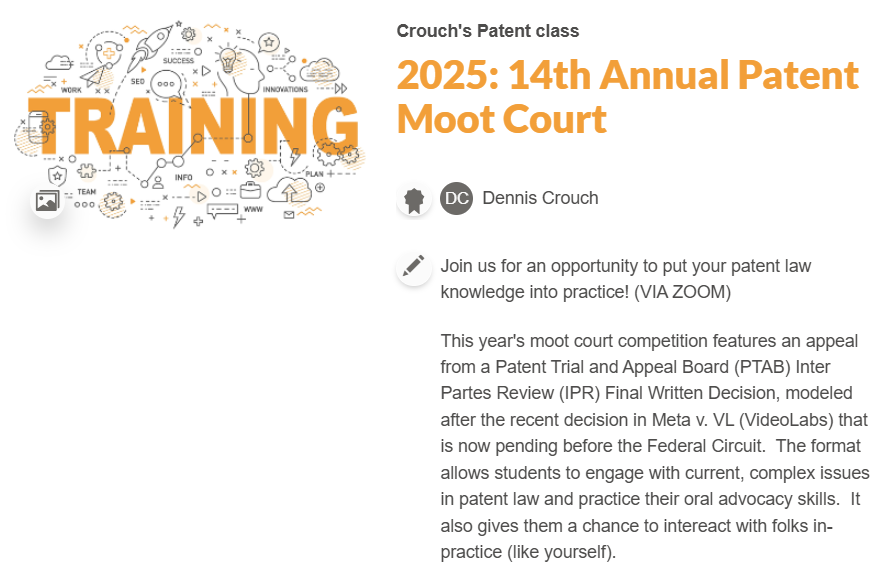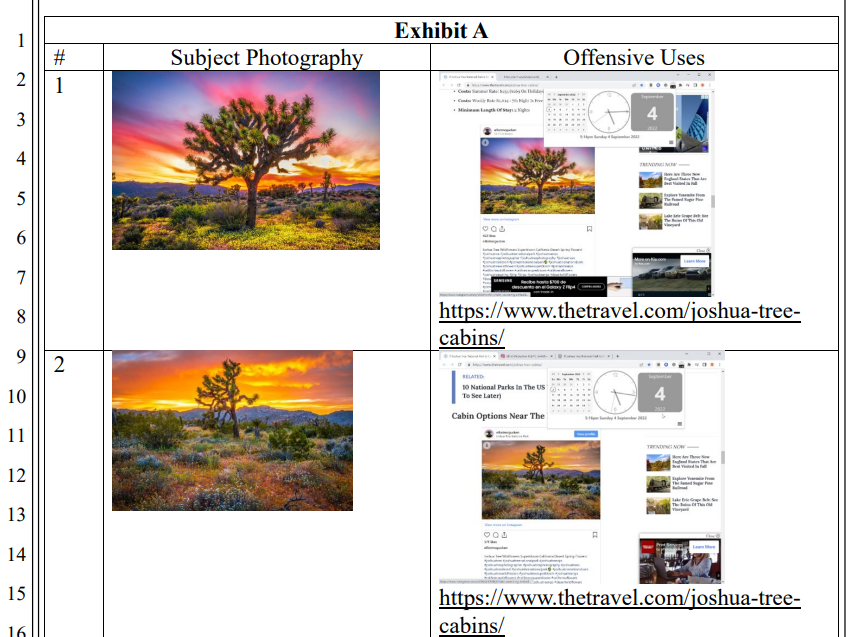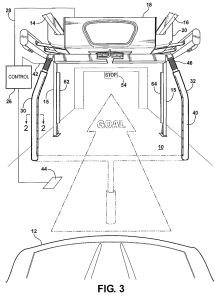by Dennis Crouch
In a unique decision, the Federal Circuit has dismissed an appeal seeking to obtain a patent that would have issued after its expiration date. In re Forest, No. 2023-1178 (Fed. Cir. Apr. 3, 2025). The dismissal on jurisdictional grounds holds that the would-be patent owner (here, the inventor) has no standing to appeal because any resulting patent would have no zero patent term. (Note - I might have written "appears to hold" since the court does not actually use the term "standing")
The focus of the decision is on a novel argument about provisional rights under 35 U.S.C. § 154(d). Ordinarily, we think of a patentee having only inchoate rights until the patent issues. While that is generally true, "provisional rights" provide some potential of back-pay for infringement that occurs between publication and issuance. In particular, once a patent issues, the a patentee can collect a reasonable royalty from parties were infringing the claims even while pending - so long as they were on actual notice of the application publication and the issued claims are "substantially identical" to those that in the published application. Importantly, as suggested, these provisional rights can only be enforced retroactively after a patent actually issues.
To continue reading, become a Patently-O member. Already a member? Simply log in to access the full post.


